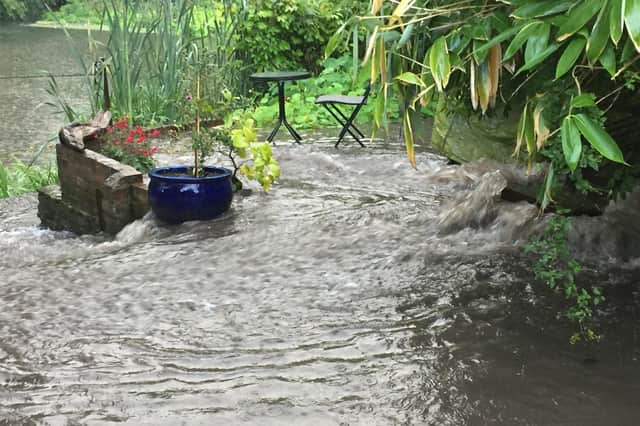Should we be concerned about about the quality of our rivers in Leamington, Warwick and Kenilworth?


Peter Bowen, 83, is a retired journalist who writes a regular column for The Courier and Weekly News. This week, he writes about a report from the Environment Agency about sewage in our waters (we reported on the issue last week - click on this link to read the story: MP hits out at water company over shocking sewage dumps in Warwick and Leamington)
Should we be concerned about the quality of the water in the River Sowe, River Leam and the Warwickshire Avon following a disturbing report from the Environment Agency that raw sewage was pumped into the nation's rivers and coastal waters more than 400.000 times in 2020?
Advertisement
Hide AdAdvertisement
Hide AdOur water company Severn Trent is reported to have had 60,982 discharges in 2020 coming third in line in the league table of water companies making discharges, during the same year the company was fined £800,000 for polluting a river.
Severn Trent, together with other private water companies, claims that the overflow discharges take place after heavy rainfall when water backs up and houses and business premises are in danger of being badly flooded. Those living and working in the catchment area are worried because more rain has fallen in October than other years.
In post-war Warwick and Leamington anglers described the Warwickshire Avon as full of sewage. In fairness, the introduction of the Finham Works greatly improved the situation, progress continued under Severn Trent in 2019 and improvements are still being made today.
But the question remains how good is the water quality in our rivers? The answer is complicated and leads to another question which is what is clean water? For the moment, it can be claimed that here in South Warwickshire we are blessed with good water quality, the envy of many other counties in the country.
Advertisement
Hide AdAdvertisement
Hide AdHowever, it comes with the warning that wild water swimming should not be encouraged and kayakers, canoeists. rowers, and anglers should be careful, avoiding persistent contact with water, particularly after a spillage. Users are asked to use their common sense whenever there is a heavy downpour.
Opinion on this issue of water quality is sure to be divided with some people claiming the private companies should invest more in infrastructure to prevent storm water overflowing and pay shareholders less. Others say the cost of doing the works is prohibitive and water quality is within statutory limits.
I went back to local anglers to ask what is clean water? Anthony Simmons, secretary of the Leamington Angling Association, says crystal clear water in our rivers is not always good for fish or wild life, including many invertebrates living beneath the water.
People should not be alarmed by the dull colour of the water, he says. Anglers fishing local waters consider the overall condition is good and the rivers contain more species than ever. Turbid water sustains an amazing amount of wild life which feeds on small particles on the surface, as opposed to solids that sink. There are more otters and kingfishers reported on rivers in the last 10 years.
Advertisement
Hide AdAdvertisement
Hide AdBut be warned! Turbid water is not good for consumption by humans because it contains tiny particles of metals and certain chemicals that are harmful. Water treatment plants have advanced technology in place to cope with this which means our drinking water is safe.
Mr Simmons says an emphasis on ever cleaner, clearer water does not necessarily mean better water because there is less food to sustain wild life and predators flourish. Stocks deteriorate despite an increase in plant life. “The water companies still need to improve and safeguard our supplies. Storm water should not be used as an excuse to further pollute our rivers,” he added.
Severn Trent says its commitment is to supply water that is always clean and safe. “We test your water over 500,000 times every year to ensure the highest standards are met for water supply, consistently achieving a pass rate of 99.9 per cent.”
However, Government has recently reversed its original thinking and now has plans to impose a duty on water companies in a bill to reduce the impact of sewage discharged from storm water overflows but opponents feel this action does not go far enough.